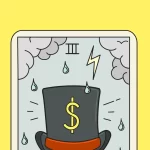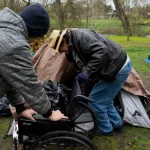The 50-page complaint against Residents Energy filed Sept. 29 alleges some customers had their energy costs tripled and claims average rates were nearly double those offered by ComEd in 2020.
Illinois is suing alternative electric supplier Residents Energy LLC, accusing the company of “deceptive and unfair tactics” that made some state residents liable for “millions” more in energy costs.
The lawsuit, announced by Illinois Attorney General Kwame Raoul’s office Monday afternoon, accuses the company’s sales force of promising “historically low,” first-month rates without disclosing they were temporary deals.
“We are as of right now lower and historically has [sic] always been lower than the utility company,” one salesperson allegedly told a customer on a recorded phone call.
“I’ve never seen the [Residents’] rate actually be higher than, you know, what the default rate is,” another salesperson allegedly said on a different recorded call.
The 50-page complaint filed Sept. 29 listed instances in which some customers had their energy costs tripled; on average, the company’s rates were nearly double those offered by ComEd in 2020, the suit claims.
Residents Energy LLC didn’t immediately respond to requests for comment.
From 2018 to 2020, Residents Energy LLC customers paid 55%, or $15 million, more than they would have paid with the public utility company, the complaint says.
The state also accuses the company of providing third-party salespeople with a script that violates Illinois’ Telephone Solicitations Act, which requires telemarketers to state the purpose of the call as soon as it begins.
Instead, the state is accusing the company of having the script start with a rebate offer for the current account before moving into the sales pitch along with “expressly and impliedly” misleading customers into thinking they were affiliated with the public utility company, with some door-to-door salespeople allegedly having claimed to work for the public utility.
The complaint also lists lies told by salespeople on recorded phone calls, such as talking about rebates through the “Illinois Energy Choice Program” — which doesn’t exist — or telling customers that the public utility company was charging them every time they opened their fridge.
The state also referenced multiple complaints filed by residents with the Illinois Commerce Commission claiming they weren’t notified when their bills increased more than 20% one month to the next, which is illegal in Illinois, along with enrolling them in residents’ programs without their consent using “manipulated” audio recordings — something the state says in its complaint is a “widespread company practice.”
The New York-based Residents Energy LLC first started operating in Illinois in 2016 and operates in nine other states, including Indiana and Michigan.
In total the company is facing 12 charges from Illinois, with each violation potentially carrying a $50,000 penalty, though this doubles if the violation was made against someone with a disability or who is 60 years or older, according to the complaint.
The state is also seeking an injunction to stop the business practices while the suit is litigated, in addition to relief for those duped by the company and costs for the case to be investigated.
A hearing date is set for Jan. 30, 2024.
The company was sued last year by an Elmhurst man who received seven calls soliciting energy services even after putting his phone on the National Do Not Call Registry, often from a “spoofed” phone number that couldn’t be called back. The suit also accused the company of using an “automatic telephone dialing system” and an automated voice system he claimed was illegal.
He originally sought $1,500 per call and costs, among other damages, though he voluntarily dropped the case four months later.
Source : Chicago Sun Times






































